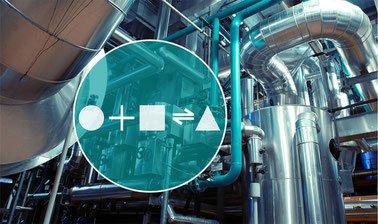MOOC List is learner-supported. When you buy through links on our site, we may earn an affiliate commission.

MOOC List is learner-supported. When you buy through links on our site, we may earn an affiliate commission.
Join this course if you want to advance your career and explore the relevant fundamental knowledge on (bio)catalytic conversion for producing (new) biobased building blocks, chemicals and products.
The focus on this course is the design of an effective (catalytic) process for the conversions of biobased feedstocks to desired products. Unique for bioconversion is the presence of the elements O, N, P, S and large quantities of water. You will therefore will explore:
- Microbial, biochemical and chemical (i.e., catalytic) conversion routes.
- How to use biocatalysts, home- or heterogeneous catalysts and optimize the process of conversion. Tune catalysts to their specific advantages and disadvantages for biobased conversions.
- The influence of the reactor choice as an inevitable asset in the process.
- How to describe the productivity of catalytic processes depending on the choice of the reactor and how the choice of the reactor can add to the stability of the conversion process.
The knowledge gained in this course will allow you to design processes specifically targeted on biomass based conversions. Learners will also have the opportunity to interact with chemists, engineers and scientists who mainly focus on the traditional fossil-based conversions.
This course is part of the MicroMasters Program in Chemistry and Technology for Sustainability: a series of 3 courses and a final capstone project designed to give you the skills needed to contribute to and embrace the transition from a fossil-based economy to a biobased one. It's especially valuable to those who have (or ambition to have) a career in industries such as: the (bio)chemical industry, agrifood water companies, energy producers, logistics, and related (non-)governmental organizations.
Explore the other courses in the MicroMasters Program:
- Biorefinery: From Biomass to Building Blocks of Biobased Products
- From Fossil Resources to Biomass: A Business and Economics Perspective
- Capstone - Final project and exam (only available to learners who have obtained verified certificates in all other courses of the MicroMasters Program).
What you'll learn
- How to efficiently convert biobased feedstocks into desired products
- To understand, evaluate and design a process based on either homogeneous, heterogeneous or biocatalysts
- Critically evaluate the pros and cons of a biobased conversion route vs a fossil-based conversion route
Course Syllabus
Module 1: Introduction to Biobased Conversions
This introduction module starts by refreshing your knowledge of the three pillars of
this course: chemical conversions, microbial conversions and reactor design. You’ll
then be introduced to homogeneous and heterogeneous catalysts, learn about
anaerobic and aerobic microorganisms and start applying mass balances on different
types of reactors.
Module 2: Development and Performance of Catalysts
Here the focus is on the catalyst. You learn how heterogeneous catalysts are
synthesised and how a suitable microorganism or mixed culture is selected. It’s also
important to verify if your conversion has been efficient. You’ll therefore learn several methods of how to quantify the performance of your catalyst.
Module 3: Reaction Kinetics in Reactor Design
A perfect catalyst can still give disappointing results if it’s not run under ideal
conditions. In this module, deactivation processes are central and you will study how
to account for them in reaction kinetics. We’ll also counter thermal deactivation
either by cooling with cold water or by evaporation.
Module 4: Improving Biobased Conversion Processes
In this module, we’ll touch upon improving a biobased conversion process. You’ll see
what tools are useful for the characterisation of your catalyst and we’ll touch upon
strain engineering. You’ll also learn how to determine the limiting factor that impacts
your conversion rate. Finally, we will take a closer look at improving conversion rates
in heterogeneous catalysts.
Module 5: Exam
It’s time to test what you have learned on biobased conversion processes!
MOOC List is learner-supported. When you buy through links on our site, we may earn an affiliate commission.
MOOC List is learner-supported. When you buy through links on our site, we may earn an affiliate commission.
